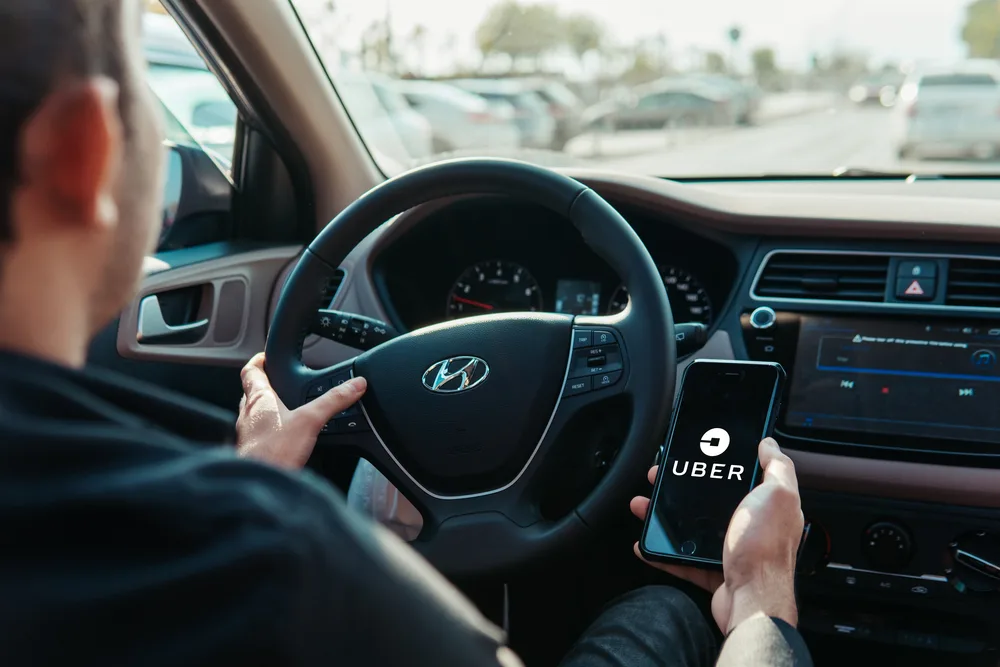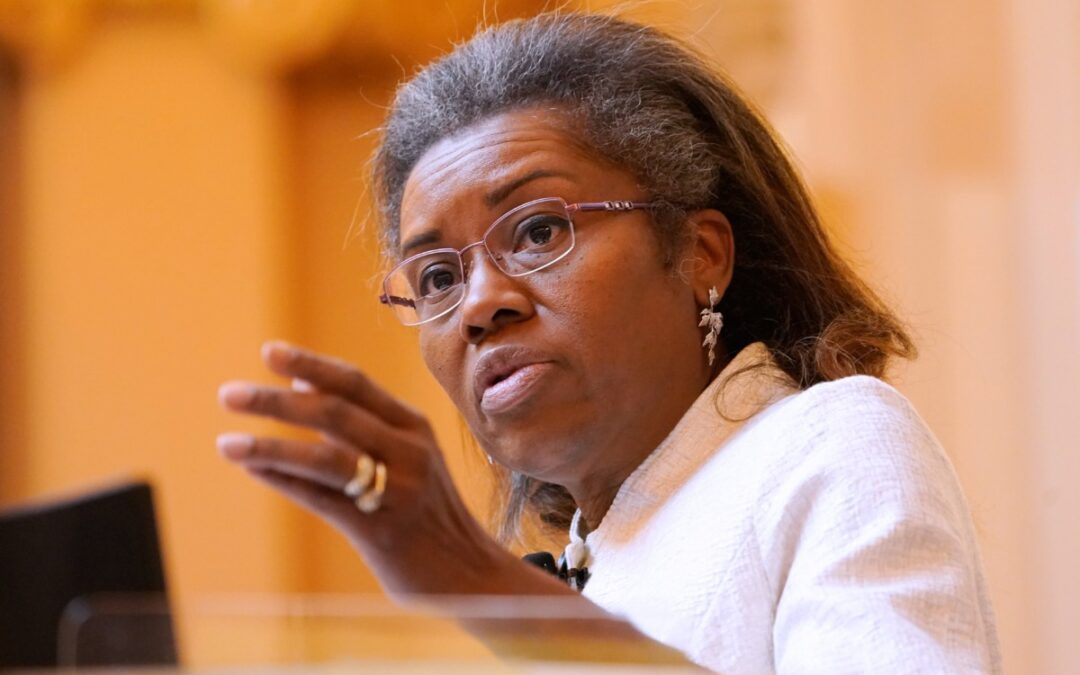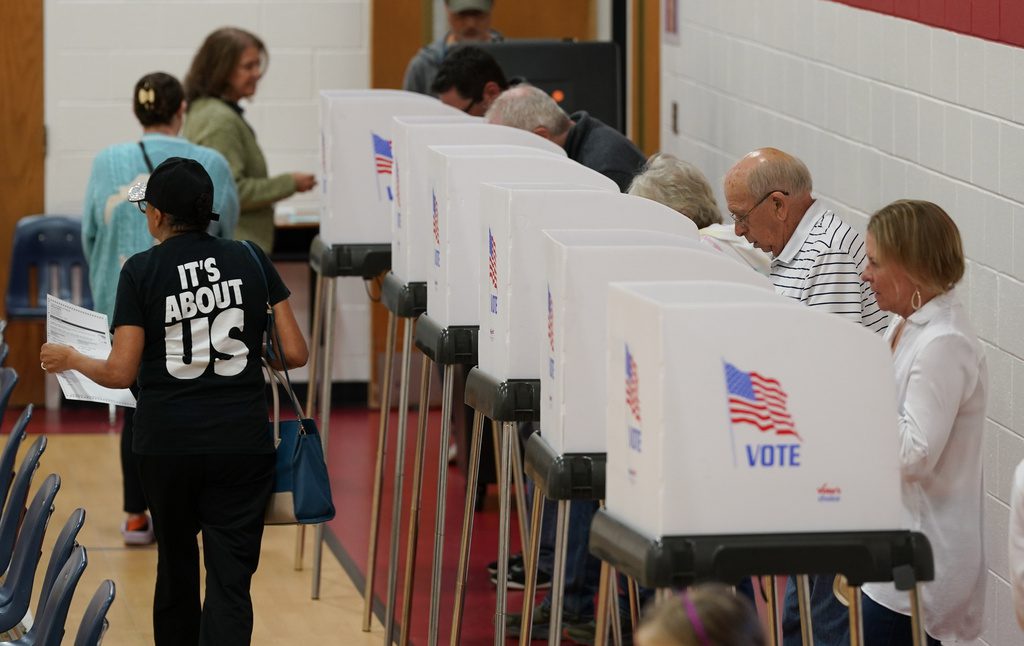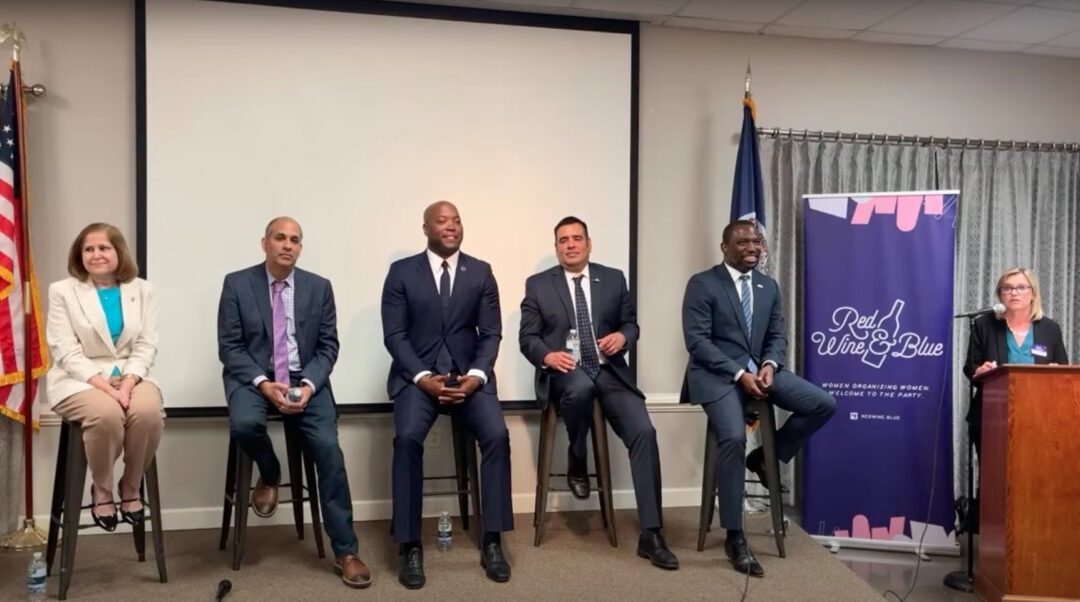
The new Labor Department rule could help millions more workers get access to benefits like overtime pay, unemployment insurance, Social Security benefits, employer-offered health insurance, the minimum wage, and paid sick days. (Photo via Shutterstock)
Millions of American workers who are currently classified as “independent contractors” and thus lack crucial workplace benefits such as overtime pay and access to unemployment insurance could soon get those benefits thanks to a new Biden administration policy.
The US Department of Labor (DOL) announced a final rule on Tuesday that aims to prevent the misclassification of workers as independent contractors, a step that could strengthen both legal protections, as well as compensation for millions of gig workers, healthcare workers, janitors, truckers, and more.
According to the agency, this rule will better define when a worker is considered an employee, and when they are considered an independent contractor under the Fair Labor Standards Act, which was passed in 1938 and created the minimum wage, prohibited the employment of minors, and more.
Companies often misclassify workers as independent contractors to avoid having to pay for the benefits and protections that employees are entitled to receive. Workers categorized as employees are entitled to benefits like overtime pay, the minimum wage, unemployment insurance, and Social Security benefits, and protection against wrongful termination. Independent contractors are not guaranteed any of these rights or benefits.
The new rule could also help many more workers get access to employer-offered health insurance and paid sick days.
In a press release, the DOL said that employee misclassification “facilitates wage theft, allows some employers to undercut their law-abiding competition, and hurts the economy at-large.”
“Misclassifying employees as independent contractors is a serious issue that deprives workers of basic rights and protections,” Acting Secretary of Labor Julie Su said in a statement. “This rule will help protect workers, especially those facing the greatest risk of exploitation, by making sure they are classified properly and that they receive the wages they’ve earned.”
The rule was first proposed 15 months ago. It replaces a Trump-era standard that narrowed the definition of independent contractors and made it easier for companies to avoid categorizing workers as employees.
The new rule will direct employers to consider six criteria for determining the classification of a worker, without one outweighing the other. The Trump-era rule, on the other hand, only prioritizes two criteria: how much control a company has over its employees and how much “entrepreneurial opportunity” the employee’s work provides.
Businesses and labor advocates have clashed over the issue of misclassification for years, and after Tuesday’s announcement, threats of legal challenges and congressional review sprung up.
Sen. Bill Cassidy (R-Louisiana), a ranking member of the Senate’s labor committee, for example, said that he plans to introduce a Congressional Review Act resolution to repeal the rule. The US Chamber of Commerce, one of the largest lobbying groups in the country, also announced its opposition.
Rideshare and delivery-app companies such as Uber and Lyft also spoke out against the rule. Uber’s head of federal affairs, CR Wooters, said in a statement that it “does not materially change the law under which we operate, and won’t impact the classification of the over one million Americans who turn to Uber to make money flexibly.”
The rule is currently set to go into effect on March 11 and has been praised by labor advocates who have said in the past that misclassifying workers hurts the most vulnerable Americans.
The International Brotherhood of Teamsters said on Twitter that the new rule is a “step in the right direction.”
“It’s long past time for American employers to recognize and respect their employees, to stop exploiting loopholes to pay workers less and deprive them of benefits, and to honor every worker’s right to organize and collectively bargain a union contract.”

Earle-Sears failed to secure police group endorsement. Here’s why
Republican gubernatorial candidate Lt. Gov. Winsome Earle-Sears did not impress in her endorsement interview with the Virginia Police Benevolent...

Norfolk Botanical Garden worker: Union push ‘brought us all together’
It marks at least the second botanical garden in Virginia that has formed a union. Sage grew up in Norfolk never having set foot in the city’s...

Earle-Sears refuses to say if Trump’s federal job cuts are bad for Virginia
The Republican nominee for Virginia governor dodged repeated questions about her position on the Trump administration’s federal workforce cuts in an...

Rising unemployment, Trump cuts fuel uncertainty about Virginia economy
A University of Virginia economist warns that if Virginia’s unemployment rate keeps rising it could strain state resources. New figures released...

Meet the pro-union Chesapeake progressive running in a Republican district
Democrat Rodney Nickens Jr. says Virginia’s “right-to-work” law has got to go as he campaigns in a conservative House of Delegates district. A...

Democratic candidates for lieutenant governor come out against anti-union ‘right-to-work’ laws
“This is a fight between the haves and the have nots,” said state Sen. Aaron Rouse. “We have to fight to make sure we balance out this equation.”...





